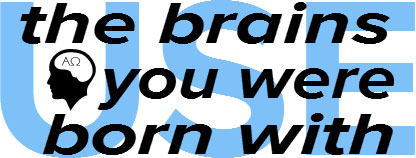If you can read this idiocy from the ny times and not get sick you are a better man than me. It’s not bad enough the poor kid who wrote the letter is a confused, guilt ridden product of public education (of course, the letter could be fake, it is the nytimes after all) but the acknowledgment and explanation for that guilt offered by the two morons from the Times captures the absolute foolishness of the left to a tee.
It’s hard not to feel sorry for the writer (if he or she is real). Clearly raised by guilt ridden white libtards in NYC and uneducated by the public school system this child is so ignorant and so lost that it seems doubtful he/she will ever, ever find themselves a whole person.
But the real crime is the affirmation, explanation and advice offered by the Times writers. They are what is so hard to believe — THEY ACTUALLY BELIEVE this poor kid’s condition is a real thing. These two fools need more help than the fool from East Harlem. It really is almost impossible to believe that anyone, ANYONE can really view the world this way. I mean, that anyone can REALLY view the world this way. Not just say this kind of nonsense but actually believe it.
This is what the majority of Americans have such a hard time with — this world view seems (that is because it is) insane. So sane people do not want to believe so many of their fellow citizens are really insane. Foundationless fools without core values of any sort or, if they profess core values they are based on nothing. This is the sad state of the social warrior which is nothing more, at best, than another word for selfish and, at worst, another word for death.
How Can I Cure My White Guilt?
The sweet spot – The thing about privilege is that it can be used for good.
By Cheryl Strayed and Steve Almond
Dear Sugars,
I’m riddled with shame. White shame. This isn’t helpful to me or to anyone, especially people of color. I feel like there is no “me” outside of my white/upper middle class/cisgender identity. I feel like my literal existence hurts people, like I’m always taking up space that should belong to someone else.
I consider myself an ally. I research proper etiquette, read writers of color, vote in a way that will not harm P.O.C. (and other vulnerable people). I engage in conversations about privilege with other white people. I take courses that will further educate me. I donated to Black Lives Matter. Yet I fear that nothing is enough. Part of my fear comes from the fact that privilege is invisible to itself. What if I’m doing or saying insensitive things without realizing it?
Another part of it is that I’m currently immersed in the whitest environment I’ve ever been in. My family has lived in the same apartment in East Harlem for four generations. Every school I attended, elementary through high school, was minority white, but I’m now attending an elite private college that is 75 percent white. I know who I am, but I realize how people perceive me and this perception feels unfair.
I don’t talk about my feelings because it’s hard to justify doing so while people of color are dying due to systemic racism and making this conversation about me would be again centering whiteness. Yet bottling it up makes me feel an existential anger that I have a hard time channeling since I don’t know my place. Instead of harnessing my privilege for greater good, I’m curled up in a ball of shame. How can I be more than my heritage?
Whitey
Steve Almond: Shame and anger are powerful emotions, Whitey. And yet your central struggle is around identity. You write that you don’t know your place. In fact, your letter describes your place as a kind of prison cell of privilege. What you really feel is trapped within an identity that marks you, inescapably, as an oppressor. This feeling is especially acute right now, I suspect, because you’re suddenly immersed in a milieu that reflects your privilege back to you. We do live in a culture steeped in white supremacy and class bigotry, as well as patriarchal values. But the solution to this injustice isn’t to wallow in self-hatred. Instead, heed the words of the writer bell hooks. “Privilege is not in and of itself bad; what matters is what we do with privilege,” she writes. “We have to share our resources and take direction about how to use our privilege in ways that empower those who lack it.” You’re not going to empower others by disempowering yourself.
Cheryl Strayed: I think Steve’s onto something when he notes that your anxiety is acute now because the racial mix at your college is reflecting your privilege back to you, but I’ll go even further: My hunch is that you’re truly seeing it for the first time. You grew up in a neighborhood and attended schools where you were one of the relatively few whites. It’s possible your status as a situational racial minority gave you the illusion that you didn’t have much in the way of racial privilege. Now that you’re living in a community that, at 75 percent white, roughly mirrors that of the American population, you’re feeling the full force of what it means to be white in a white supremacist culture and it makes you feel uncomfortable because up until now, in some unconscious way, you’d exonerated yourself from it. You were the “good white person” because you grew up among people of color. Now you’re another white face in the crowd at your elite college, and ashamed of it.
